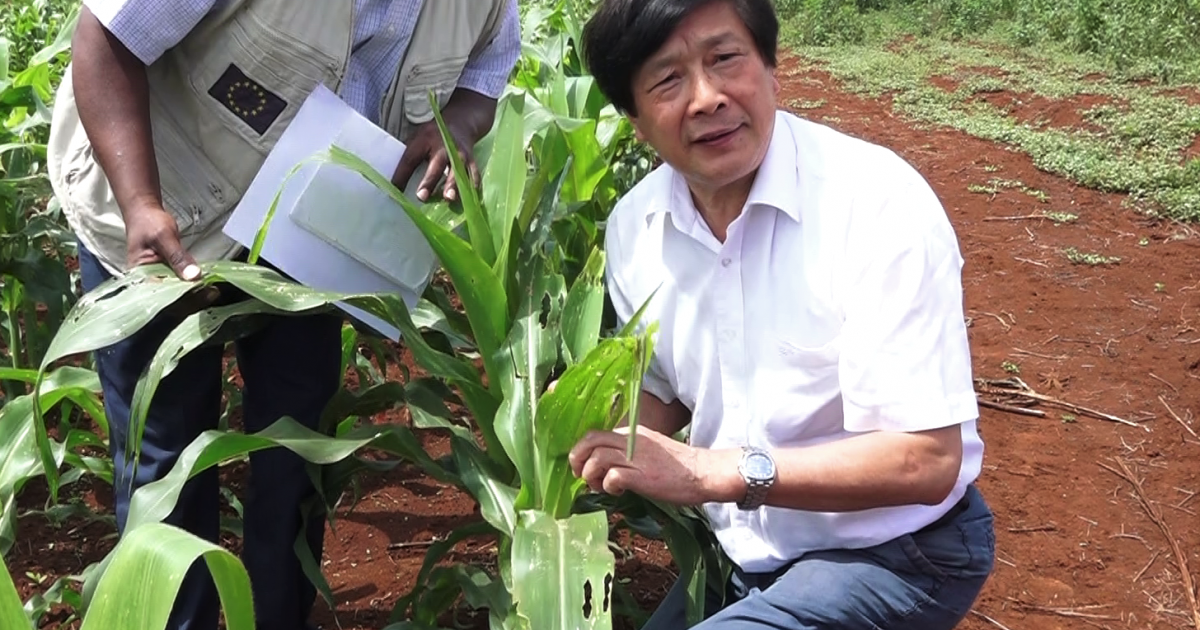Food and Agriculture Organization (FAO) is increasing efforts to combat the effects of Fall Army Worm in Kenya and Africa by supporting farmers to fight the pest and protect crops through Integrated Pest Management.
Kenya is among eight demonstration countries that have been identified for implementation of the Global Action for Fall ArmyWorm Control (GA) by FAO.
Fall Army Worm is a ravenous transboundary pest that targets maize and other food crops such as sorghum, millet and sugarcane.
The insect originated in America and arrived in Africa in 2016 and has spread to 80 countries in Africa, Near East, Asia and the Pacific Ocean Region in a span of six years according to FAO Director of Plant Production and Protection Division Jingyuan Xia.
Speaking in Embu on Wednesday during a visit at a demonstration farm of FAW and various farmers’ groups, the Director said some of the techniques that farmers were being trained on include use of bio-pesticides and nature-based solutions.
“FAW was one of the main limiting factors towards global food security and ranked as one of the top ten devastating plant pests,” he said, noting that maize was the most susceptible crop.
This, he said, calls for urgent intervention measures to be taken to ward off the spread of the invasive insects that was jeopardizing food security across vast regions of the globe.
Xia said they were catalyzing the war by working with farmers across the pilot countries to develop good strategies including community-based scouting and monitoring, bio-ecological control and famers schools to build their capacity to detect and control FAW.
He said Africa was grappling with the tropical species of the African Army Worm that many farmers were struggling to deal with since lack of rains as well as increased temperatures was providing the best conditions for their multiplication.
As a mitigation measure, farmers around the country had developed control methods including use of organic methods such as pepper, garlic, mexican marigold and pyrethrum that FAO said were very promising and effective.FAO Kenya Representative Carla Mucavi said it was possible to control FAW notwithstanding climate change that was affecting global food security.
She said the Global Action for Fall Army Worm Control was helping by working closely with farmers to equip them with tools that can allow them to minimize the loss of their crops to assure them of food security and returns on their investment.
Kenya Agricultural and Livestock Research Organization (KALRO) Embu Branch Director Dr. Alfred Micheni said they had set aside five acres of demonstration farm to carry out trials that will equip farmers with best practices in control and eradication of FAW.
“One of the problems we are addressing through research to ensure we have more food is to have technologies that reduce or eradicate FAW especially in the maize crop,” he said.
Embu County Chief Officer in charge of agriculture Stephen Mwita said that the county was losing about 30 percent to the pests and the initiative by FAO to assist farmers in controlling and eradicating them was timely and handy.
By Samuel Waititu





